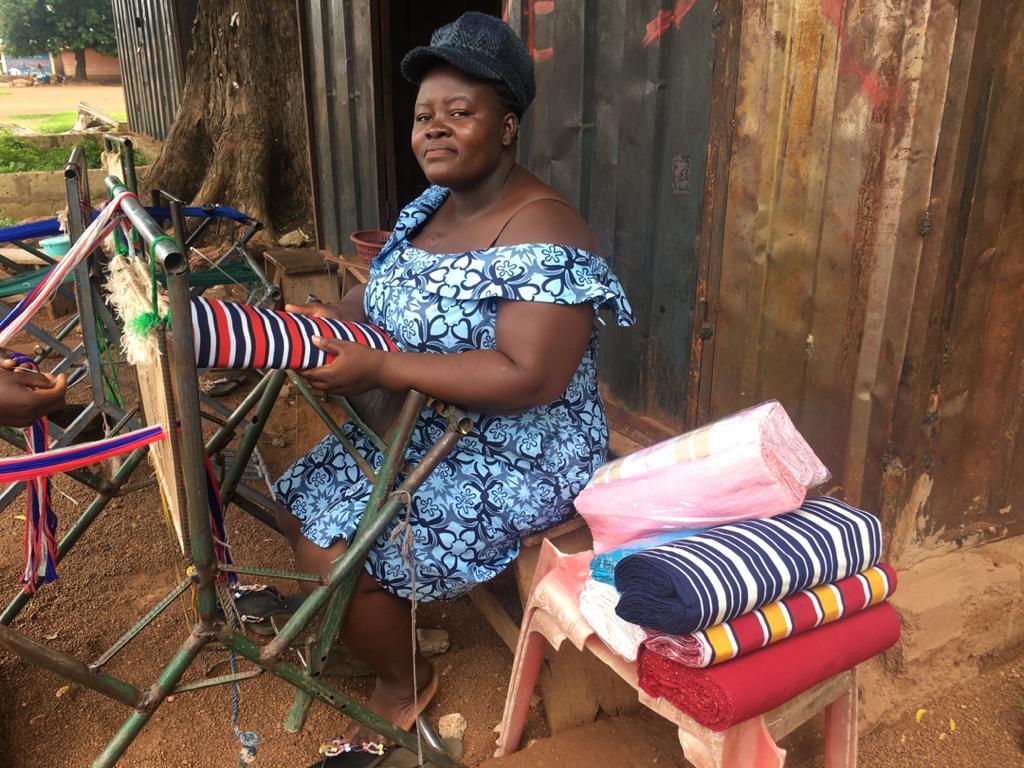The impact of Coronavirus is being felt by all businesses around the world. To help us understand the economic impact of COVID-19 in Lawra, the ATE team have been out in the community, talking with all of our small businesses, monitoring how they have been affected by the crisis and what we can do to help.
This is Rufina, a weaver in Lawra, whose business was granted by ATE in 2016. When the Government of Ghana brought in the restrictions in March due to COVID-19, putting a stop to all social gatherings, Rufina’s business was greatly affected. As a weaver, the ban on markets, churches, funerals and parties (for which her material is often sold) meant that she had no customers to sell her products to. Depending on weaving to help her husband feed the family, and to put up a container for her business, was a challenge. She had to rely on her savings for food and to sustain the business. Now, she is producing more material, and is hoping to sell more if gatherings are allowed soon. The business currently is sustained, and she is hoping to improve it further, but the market is very tough at the moment.
Many people like Rufina, who had spent a long time building their savings from their business, have had to use them all during the crisis. This means that if a lockdown happens again, business slows further, or an emergency happens – they are stuck. With the average household size in Lawra over six people, this has knock on effects on so many. To help people like Rufina get their businesses back on track, donate to ATE’s Rebuild campaign and contribute to a small business recovery grant. Thriving businesses lift up communities.
Support ATE’s Rebuild Campaign here
By Prosper Albeboure, Team and Projects Leader and Hub Manager
